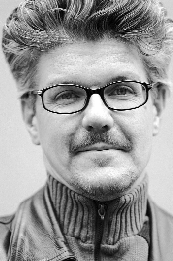From The Editor
Published in Editorial, Feature Article, Issue 4 (July-August 2013), Volume 21JFK and Ireland
 In what may or may not be a coincidence, this year of ‘the Gathering’ coincides with the 50th anniversary of the official visit to Ireland of President John F. Kennedy. From a diplomatic point of view it was a triumph for the Irish state, breaching as it did the diplomatic isolation that had been the price paid for neutrality during World War II. Politically it was less significant. Although the issue of partition was raised (as it always was on such occasions), it would have little purchase with a president who was a confirmed Anglophile (not surprising at the height of the Cold War). Nor had Kennedy much interest—up to that point—in the ethnic politics of Irish-America. In grooming him for a political career his father Joe had ensured that he appeared ‘more Brahmin than the Brahmins themselves’ (Boston’s WASP élite).
In what may or may not be a coincidence, this year of ‘the Gathering’ coincides with the 50th anniversary of the official visit to Ireland of President John F. Kennedy. From a diplomatic point of view it was a triumph for the Irish state, breaching as it did the diplomatic isolation that had been the price paid for neutrality during World War II. Politically it was less significant. Although the issue of partition was raised (as it always was on such occasions), it would have little purchase with a president who was a confirmed Anglophile (not surprising at the height of the Cold War). Nor had Kennedy much interest—up to that point—in the ethnic politics of Irish-America. In grooming him for a political career his father Joe had ensured that he appeared ‘more Brahmin than the Brahmins themselves’ (Boston’s WASP élite).
Emotionally the visit had an even greater impact on the Irish public at large. Here for once was a positive manifestation of the haemorrhage of emigration experienced by the Irish population over the previous century. Here was ‘one of our own’ (Catholic, Irish), acclaimed amongst ‘his people’ with a genuine and sincere affection bordering on the religious. (In fact, one of the side chapels in Galway’s Catholic cathedral, dedicated two years later, features a mosaic of Kennedy with his hands clasped in prayer.)
Kennedy was not the first US president of Irish background. (There have been twelve so far, up to and including President Obama.) Nor, despite having eight Irish-born great-grandparents, is Kennedy the ‘most Irish’ of the twelve. That distinction goes to Andrew Jackson, both of whose parents hailed from Boneybefore, Co. Antrim. The real significance of Kennedy was that he was the first (and only) Catholic president of the United States, and he had to overcome a huge amount of anti-Catholic prejudice, particularly in the South, to get himself elected in 1960. As we contemplate the significance of his visit 50 years ago, and in the less monocultural Ireland of today, the speech that he gave in the course of that campaign in Heuston, Texas, to a gathering of sceptical Protestant ministers has a particular resonance:
‘I believe in an America where the separation of church and state is absolute, where no Catholic prelate would tell the president (should he be Catholic) how to act, and no Protestant minister would tell his parishioners for whom to vote; where no church or church school is granted any public funds or political preference; and where no man is denied public office merely because his religion differs from the president who might appoint him or the people who might elect him.’
* * *
And finally, a word of thanks to Brian Hanley and Conor McNamara, the hard-working commissioning editors of this special issue on the 1913 Lockout.
6 Palmerston Place, Dublin 7
editor@historyireland.com
















